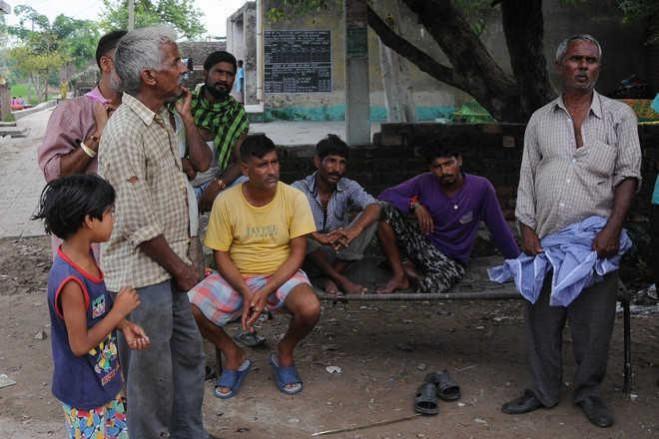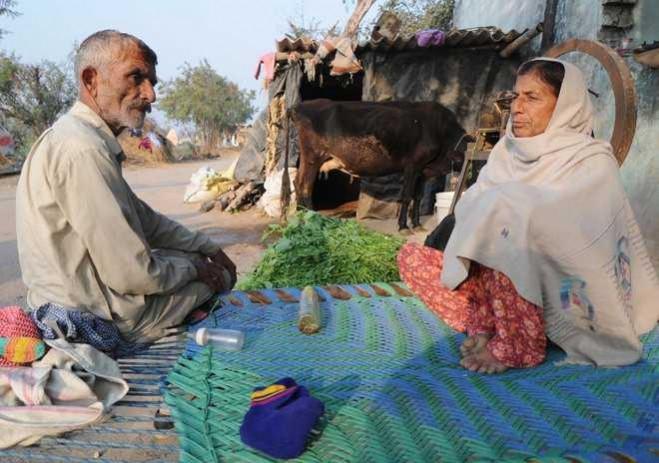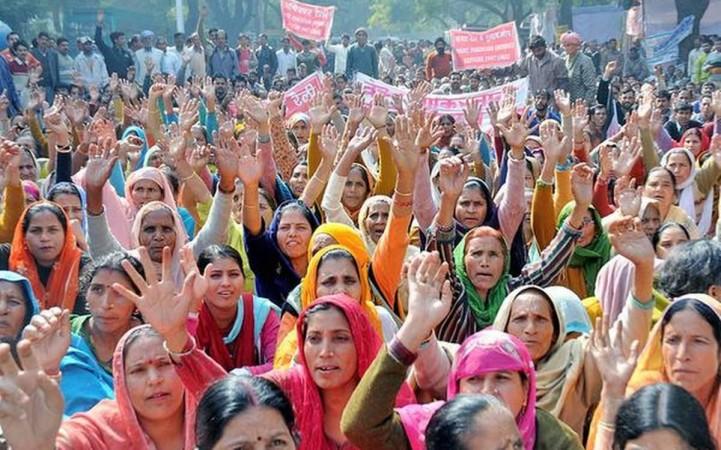On the eve of the second anniversary of the abrogation of Article 370 and 35-A, hectic activities were going on at Swankha Morh in Jammu and Kashmir's Samba district, where the office of the West Pakistani Refugees is situated. Preparations were in a full swing for the event by inviting refugees from different parts of the Jammu region to celebrate the 'freedom day' in a big way.
"We are least concerned about the ongoing debate generated by the intelligentsia and self-styled experts on Jammu and Kashmir. After a long struggle of 73 long years, our fourth-generation has ultimately got the basic right, so we have reasons to celebrate it in a big way," Labha Ram Gandhi, leader of the refugees, told International Business Times. He said first time after 1947 West Pakistani refugees have participated in Panchayat and Urban Local Bodies (ULBs) elections.

The process to give relief to refugees begins
It was only after the abrogation of Articles 370 and 35-A that the 73-year-long struggle of the four generations of the West Pakistani refugees ultimately yielded results. Not only domicile certificates granted to refugees, files for sanctioning the compensation, under the one-time-settlement, were also approved.
"Although there is no official data available of the West Pakistani refugees' families living in J&K, we have provided a list of 19,968 families to the administration," Gandhi said and revealed that process has been initiated to distribute relief of these families.
Jammu and Kashmir Government has informed that financial assistance of Rs. 5.50 lakh per family will be provided to West Pakistani refugees.
During his visit to Jammu on June 8, 2018, the then Union Home Minister Rajnath Singh had announced Rs 5.5 lakh compensation to the families of the West Pakistan refugees settled in Jammu.

Refugees now eligible for domicile certificate of J&K
After the abrogation of Article 370, the Permanent Resident Certificate (PRC) law was abolished and replaced by the new domicile law, these refugees are not eligible to get a domicile certificate of J&K.
Living in different parts of the Jammu region since 1947, these refugees were denied citizenship rights. Suffixed with the title of 'Gair Bashinda' (non-resident), these families could not own property, get government employment, or even a ration card. All thanks to Articles 370 and 35A.
Who are West Pakistani refugees?
In 1947, when Hindus and Sikhs from Sialkot were migrating to India, some families had preferred to cross over to J&K and take shelter as this place was nearer. Since then, these refugees, the majority of them Dalits and OBCs, have struggled for a dignified settled life.
Despite living in Jammu and Kashmir since 1947, they were not entitled to citizenship of the erstwhile State due to Article 35-A.
Why West Pakistani refugees were denied citizenship in J&K?
Article 35-A was incorporated in the Indian Constitution on May 14, 1954, by a Presidential Order. It enabled the Legislative Assembly of the erstwhile State of J&K to define "permanent residents" and give them special rights and privileges, as well as to restrict the rights and privileges of all citizens of India who do not fit into this category.

As a consequence, no one except those defined as "permanent residents" were entitled to property rights, jobs, participation in elections, admission to government-run institutions; scholarships, and other social benefits.
As per the Constitution of the erstwhile state of J&K, only those who were living in J&K before or on May 14, 1944, were entitled to the title of "citizenship". The refugees were left out and were denied the Permanent Resident Certificate (PRC). Only those holding a certificate can own property, gain admission, apply for employment with the government, or vote.








![BJP fields Tashi Gyalson for Ladakh; drops sitting MP [details]](https://data1.ibtimes.co.in/en/full/797185/bjp-fields-tashi-gyalson-ladakh-drops-sitting-mp-details.jpg?w=220&h=138)








![BJP fields Tashi Gyalson for Ladakh; drops sitting MP [details]](https://data1.ibtimes.co.in/en/full/797185/bjp-fields-tashi-gyalson-ladakh-drops-sitting-mp-details.jpg?w=220&h=135)